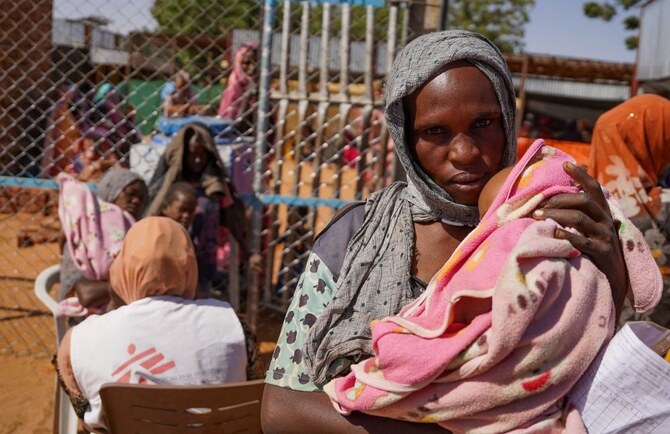NEW YORK CITY: A UN report on the civil war in Sudan, published on Thursday, revealed disturbing evidence of arbitrary detentions, torture and other ill-treatment of detainees in Khartoum State by both sides.
The findings underscore a broader pattern of abuses by the Sudanese Armed Forces and rival paramilitary faction the Rapid Support Forces in conflict zones throughout the country.
Since the fighting began almost two years ago, tens of thousands of people, including women and children, have been detained without charge. Many face severe restrictions on communication with their families, and are held in overcrowded, unsanitary conditions that violate international human rights standards.
The report, covering the period from the start of the war in April 2023 until June 2024, is based on testimonies from 34 former detainees, their family members, and witnesses. The accounts reveal widespread torture, including frequent beatings, and deplorable conditions including overcrowding, inadequate provision of food and water, and lack of medical care. Many detainees reportedly died in custody as a result of neglect.
“These practices — arbitrary detention, torture, ill-treatment and inhumane conditions — are deeply disturbing,” said the UN’s high commissioner for human rights, Volker Turk.
“No individual should be deprived of their liberty without due process, nor subjected to torture or other cruel, inhuman or degrading treatment.”
The report also highlighted the plight of child detainees, with some as young as 13 detained alongside adults in certain facilities, raising concern about the exploitation of minors in the conflict. Children as young as 14 reportedly serve as guards in RSF-controlled facilities.
In addition, sexual violence against women was documented at two RSF-run detention centers.
Ethnic discrimination is another troubling issue highlighted by the report. It states that detainees from the Darfur and Kordofan regions, particularly those from African tribes, were disproportionately subjected to torture and mistreatment.
The RSF and SAF have also reportedly targeted individuals based on perceived affiliation with the opposing side in the conflict, with ethnic profiling prevalent in detention facilities run by both forces.
Furthermore, the report raises concerns about enforced disappearances, citing cases in which families are unable to obtain information about the whereabouts or well-being of detained relatives. In one instance, a family was repeatedly warned by RSF intelligence personnel not to inquire about a detained relative, only to later discover he had died.
Though the report focused on Khartoum State, it noted that similar human rights abuses have been documented in other conflict-affected regions, including Darfur and Al-Jazirah State.
The UN has also received reports of detainees being transferred from facilities in Khartoum to other locations, particularly in South Darfur, raising fears that such moves could exacerbate human rights violations.
“These practices undermine the rule of law and due process, and increase the risks of further human rights violations,” Turk said, as he called for immediate action by all those involved in the conflict to improve the situation.
The UN report called for an end to arbitrary detentions, torture and other ill-treatment, improvements to conditions in detention facilities, and greater access to justice.
It also encouraged the international community to engage with Sudanese authorities and armed groups to address the abuses and work toward an end to the ongoing crisis in the country.
The release of the report comes with the war in Sudan showing little sign of abating, and amid continuing calls from the international community for an urgent resolution to the humanitarian and human rights crisis in the country.
























